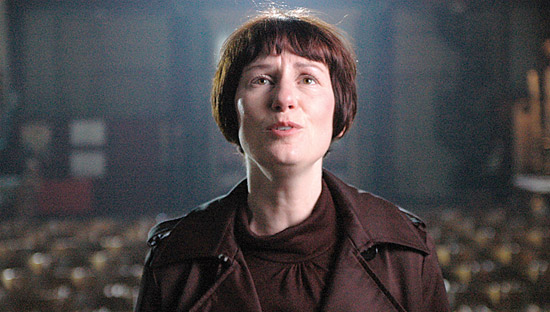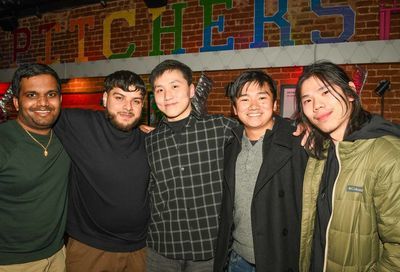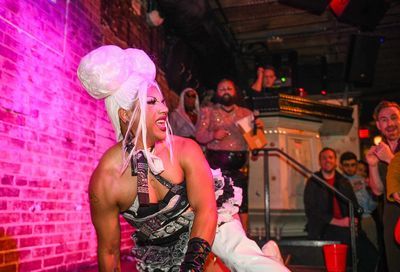The Sleeping Beauty of East Finchley
Reel Affirmations 2011
Review by Jonathan Padget
Rating: 

 (3 out of 5)
(3 out of 5)
Saturday, 10/15/2011, 1:00 PM
Shorts presentation, $12 at Globe Theatre

IT’S LIKE GLEE, see, only the setting is a London suburb, and the choir is a lesbian group called the Friends of Dusty, and instead of a big competition, the gals have their hearts set on a big festival for European LGBT choruses.
Okay, so maybe The Sleeping Beauty of East Finchley isn’t much like Glee at all, especially not in the earnest, heavy-handed style that British writer-director Seamus Ray has employed for this cinematic trifle. The whole thing is sweet enough, with its tale of Joan (Josie Walker), a repressed, unfulfilled middle-aged woman who’s stuck with a sick mother and blessed with a phenomenal singing voice that has no outlet until visiting nurse Pat (Ruth James) talks her into joining the choir without ever managing to mention that it’s a lesbian affair.
But holy heck, this is simple stuff. Dusty Springfield packed more lesbian emotional complexity into a three-minute B-side than Ray and company can muster in nearly an hour. Joan’s vocal prowess earns her a big solo (the musical numbers are quite lovely), but she can’t handle the attention of the festival or of Pat, who has to take Joan’s place onstage, only she can’t go on because she’s so heartbroken. Gee, do you think Joan will show up at the last minute and earn a roaring ovation from the crowd?
The nagging thing about The Sleeping Beauty of East Finchley isn’t that it wouldn’t have it any other way, it’s that at such a shallow depth, it couldn’t have it any other way.
Also on tap with Finchley is the documentary T’ain’t Nobody’s Bizness: Queer Blues Divas of the 1920s (
 ), which begs for a sub-subtitle, Just Like One of Those Tiresome Queer Documentaries of the 1990s. Filmmaker Robert Philipson allots just a half-hour to what should be an engrossing subject: gay and bisexual black women — Alberta Hunter, Ma Rainey, Ethel Waters and others — who used the permissiveness of the blues to forge a path for queer identity. The subjects get barely more than passing mentions, though. Much screen time is wasted on dull talking heads with few insights, and gay viewers are told in no uncertain terms that they must revere these women, without telling them enough about why.
), which begs for a sub-subtitle, Just Like One of Those Tiresome Queer Documentaries of the 1990s. Filmmaker Robert Philipson allots just a half-hour to what should be an engrossing subject: gay and bisexual black women — Alberta Hunter, Ma Rainey, Ethel Waters and others — who used the permissiveness of the blues to forge a path for queer identity. The subjects get barely more than passing mentions, though. Much screen time is wasted on dull talking heads with few insights, and gay viewers are told in no uncertain terms that they must revere these women, without telling them enough about why.
Support Metro Weekly’s Journalism
These are challenging times for news organizations. And yet it’s crucial we stay active and provide vital resources and information to both our local readers and the world. So won’t you please take a moment and consider supporting Metro Weekly with a membership? For as little as $5 a month, you can help ensure Metro Weekly magazine and MetroWeekly.com remain free, viable resources as we provide the best, most diverse, culturally-resonant LGBTQ coverage in both the D.C. region and around the world. Memberships come with exclusive perks and discounts, your own personal digital delivery of each week’s magazine (and an archive), access to our Member's Lounge when it launches this fall, and exclusive members-only items like Metro Weekly Membership Mugs and Tote Bags! Check out all our membership levels here and please join us today!



























